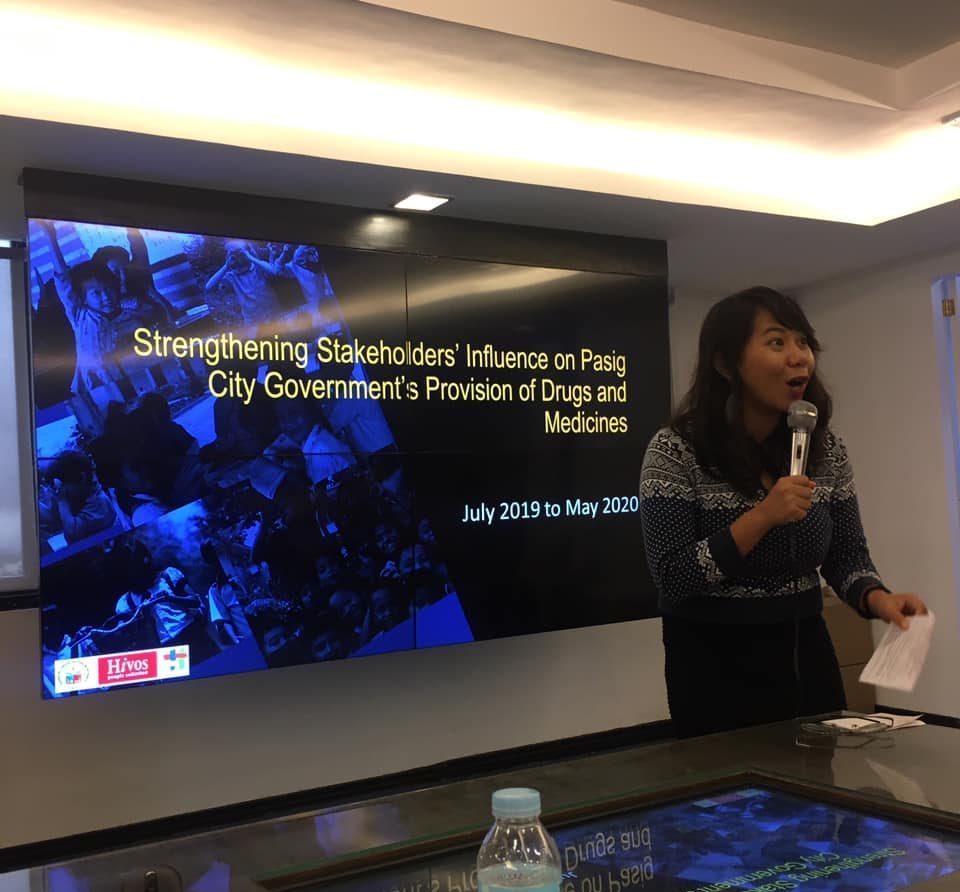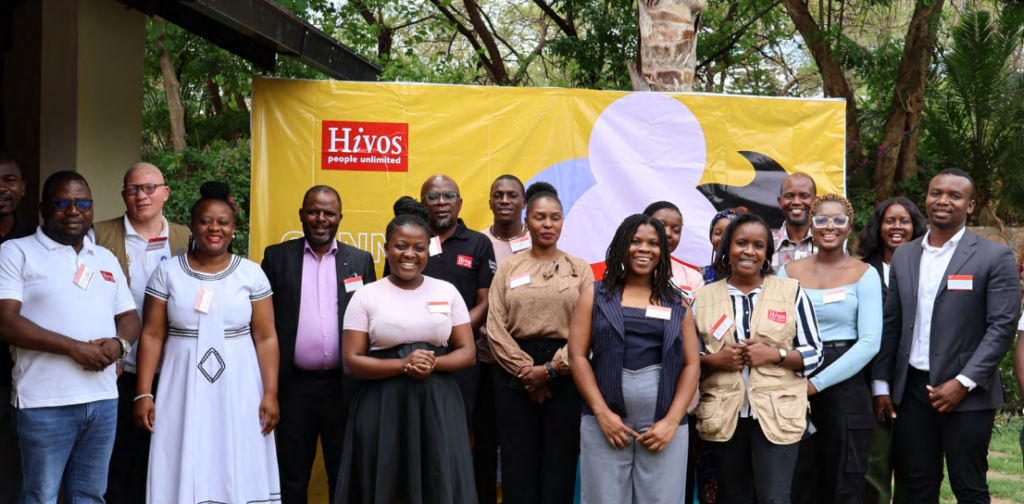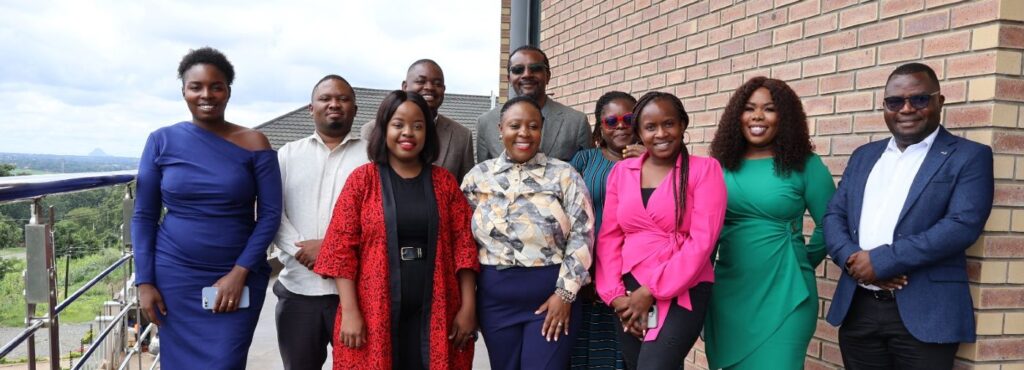Setting social accountability in motion in Pasig City
With support from Hivos Southeast Asia, the Affiliated Network for Social Accountability in East Asia and the Pacific (ANSA-EAP) entered into a partnership with the city government of Pasig City, the Philippines, to find out how effectively local officials are able to deliver this basic service.
The project, which began in July 2019 and is expected to end in April 2020, will use the lens of social accountability in determining the provision of medicine to the people of Pasig.
High hopes
The current mayor, Victor Ma. Regis (Vico) Sotto, is a 30-year-old former councilor who toppled nearly three decades of rule by the city’s most powerful family. Sotto holds a masters degree from the Ateneo School of Government and was, himself, a citizen volunteer observing government procurement processes.
Teresa Briones, project manager for ANSA-EAP, says the start of Sotto’s term coincided with Hivos’ emphasis on tapping newly elected officials as allies in transparency in governance, in general, and open data/ open contracting in particular.
Sotto knew, from being part of the local legislature, that medicines enjoyed a considerable allocation in the city’s budget. He thus wanted to reconcile why there remained a strong clamor for free medicines from city residents – the lines in health centers and local hospitals were still insufferably long.
The city thus partnered with ANSA-EAP to look at procurement and distribution process, and even the allocation system. From the project, the city could undertake evidence-based review and reform.
The right tools
ANSA-EAP is best known for pushing social accountability, which empowers citizens to be not just receivers or beneficiaries of public services, but active participants engaged in every step of the governance process.
Social accountability is not an adversarial approach. Citizens are not “watchdogs” who operate on the premise of wrongdoing on the part of their local leaders. Rather, the engagement is mutually constructive, issues-based, and highly participatory.
The twin tools of Public Expenditures Tracking Survey (PETS) and a Community Scorecard (CSC) will be used for the project.
PETS, a quantitative survey of the supply side of public services, tracks the use of funds from where it is disbursed to where it is spent, in essence following the money and asking whether it reached its intended beneficiaries. Leakages are noted and analyzed.
Meanwhile, CSC is a community-based monitoring and evaluation tool that enables citizens to assess the quality of public service and the performance of government units. It includes focus group discussions among various stakeholders.
Defining the parameters
A crucial factor in the project’s success is the selection of barangays, the administrative division, and citizen participants. ANSA-EAP identified the barangays that will be tapped for the project, working from the number of indigents as a percentage of the total population. It also mapped civil society organizations in the city and determined which among these enjoyed substantial constituency.
Meanwhile, one of the early challenges was the voluminous documents that they gathered pertaining to the procurement of medicine. “We were overwhelmed,” says Briones. “And yet, despite the sheer number of photos and photocopied pages, we still could not tell if this is all there is to gather, and how these help complete the big picture. How do all these documents compare to the procurement data submitted to PhilGEPS?”
Nonetheless, all these are data they can begin with. “We look for red flags – for example, questionable budget expenditures. We also heard that despite the huge expenses on medicine, the Commission on Audit had called the city’s previous executives’ attention to ‘unspent funds.’”
Realities on the ground
One of the most sensitive points in the project is the political play between the new mayor and the barangay captains in the city, all of whom are affiliated with Sotto’s immediate predecessor. Debbie Bartolo of ANSA-EAP says that while their emphasis is on improving processes in the delivery of public service, their motives could be portrayed as an attempt to smear the previous local executive.
“Mayor Sotto is careful not to come across as singling out barangays whose leaders supported the man he challenged,” Bartolo says. The same situation applies to civil society organizations that may partake of the nature of political bases rather than legitimate-cause groups.
The initial meetings looked promising. “We gave out invitations to everybody and all of them came to our launch,” says Briones. “That’s a good first step. We just hope they will cooperate with us until the end because ultimately, this is not about pitting one politician against another, or finding fault in your predecessor. It’s about improving governance to benefit the people.”
Behavior, first and foremost
The program seeks to change people’s behavior in how they see government projects and make them see that it is important to participate in similar evaluations.
“We want to capacitate people to appreciate and use data. We want to make them see the role data access and data use play in their everyday lives,” says Briones. “We want the clamor to remain even after this project with Hivos.”
Findings and recommendations that will be gleaned from citizen feedback will allow CSOs to come up with a health agenda that can be used in future engagements with the local government.
“If there is appreciation, the people themselves will demand good public service and processes to monitor these. All we have to provide is technical support and capacity building.”
Bartolo says ANSA-EAP’s initial conversations with citizens highlighted the need to improve the delivery of health services in the city.
“True experiences paved the way for this project. Local leaders and service frontliners must, first and foremost, recognize the fact that these stories are taking place. And then they can do something about it.”




